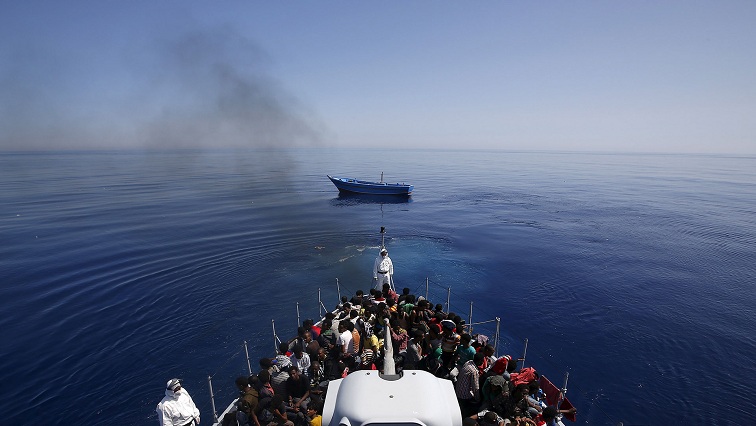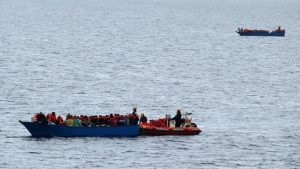From forced labour in Libya to a job as a founding member of an Italian fashion start-up, Bassirou has come a long way in two years, thanks to his skills with scissors.
The 26-year-old Burkina Faso native is the star student of a novel project aimed at training asylum seekers in one of Italy’s most emblematic crafts: making leather handbags
And after a 15-month apprenticeship, Bassirou has just become the first employee of a small company set up with the aim of turning the project into a self-sustaining venture.
“It is a great opportunity,” he says of his new career move. “I had done a bit of cutting and sewing back home but that was with cloth, not leather.
“It wasn’t easy at the start, every little thing seemed difficult, but after a certain point, you get the hang of it.”
Bassirou left Burkina Faso in west Africa, and a partner then pregnant with his now two-year-old daughter, in 2015.
He says he fled because he feared for his life in the tumultuous aftermath of yet another military coup in the impoverished former French colony.
Now he is awaiting the outcome of his application for asylum in Italy and is one of some 400 recently-arrived immigrants being looked after by Lai-Momo, a social cooperative that runs the EU-funded leather skills project in the small town of Lama Di Reno near Bologna.
The decision to leave home was not an easy one, Bassirou says, and it is one he might have reconsidered had he known of the horrors that awaited him in Libya, the jumping off point for most Africans trying to get to Europe.
Shocking recent images of slave auctions in the troubled north African state came as no surprise.
“These are things that are really happening in Libya,” Bassirou told AFPTV.
“I had a bit of a taste of it. They put us in a prison. At any time they could come and get us to do forced labour, all sorts of jobs. They never gave us enough to eat.
“All that, it’s slavery,” he said.
Bassirou endured these conditions for four months before the traffickers controlling his fate finally put him onto an inflatable dinghy packed with over 100 others.
After many fraught hours at sea, mostly spent praying it would not sink, the overcrowded dinghy was spotted by a British ship.
“At the moment we were rescued there was a bit of a stampede to get off and the boat started taking on water. In the end they got everyone off.”
The date, March 20, 2016, is etched permanently in his memory. “These are things you don’t forget easily,” he says.
Now he dreams of being able to open his own shop, but the future path of his life remains uncertain, as is the case for tens of thousands like him in overcrowded reception centres across Italy.
Few of them will benefit from the kind of support that has helped Bassirou pursue his education to Italian high school level, or the distraction from the stress that comes with living in limbo.
“Doing this (working), you are going to have positive rather than negative thoughts, you’re thinking that when you’re finished, you’ll have a trade,” he says.






